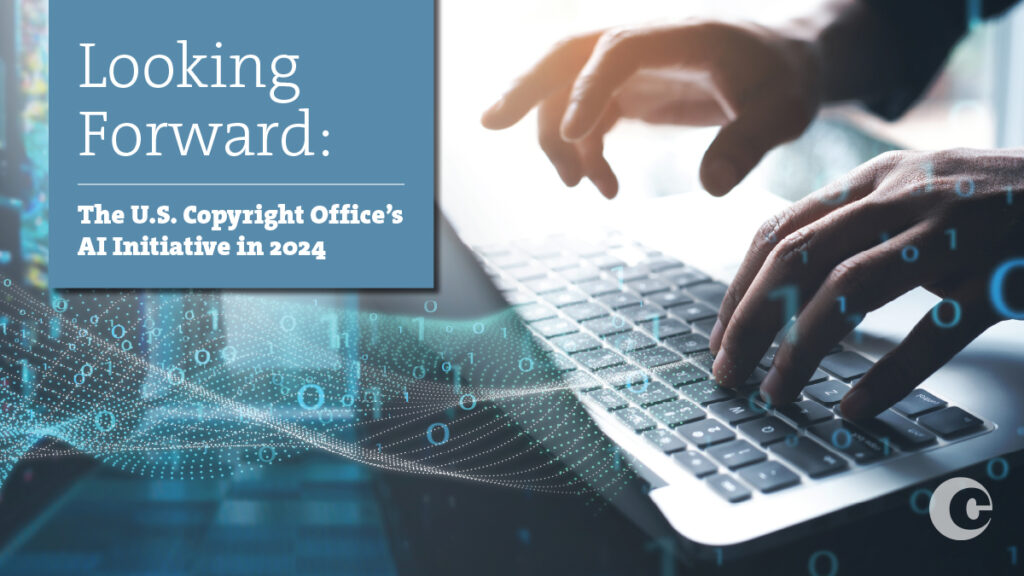More than one year ago, the U.S. Copyright Office launched a comprehensive initiative to examine the impact of generative Artificial Intelligence (AI) on copyright law and policy. This blog post highlights the next steps of this ongoing study and summarizes a recent update to Congress from Register of Copyrights Shira Perlmutter.
Over the coming months, the Office will issue a report, published in several sections, analyzing the impact of AI on copyright and making recommendations about any legislative or regulatory action. The first section will focus on digital replicas, or the use of AI to digitally replicate individuals’ appearances, voices, or other aspects of their identities. This section will be published later this spring.
The second section, to be published this summer, will address the copyrightability of works incorporating AI-generated material. Later sections will focus on the topic of training AI models on copyrighted works as well as any licensing considerations and liability issues. The Office’s goal is to finalize the entire report by the end of the fiscal year.
Separately, the Office will publish an update to the Compendium of U.S. Copyright Office Practices, the administrative manual for registration. The update, which will follow a public notice requesting comments, will include further guidance and examples relating to the registration of works containing AI-generated material.
Additionally, the Office has brought together a group of government and academic economists to discuss the economic aspects of the intersection of copyright and AI. Later this year, the Office will publish the group’s proposed research agenda.
New announcements, updates, and publications will be posted on the Copyright and Artificial Intelligence webpage throughout the rest of this fiscal year. Subscribe to the Office’s NewsNets to stay up to date on the Office’s AI initiative.
